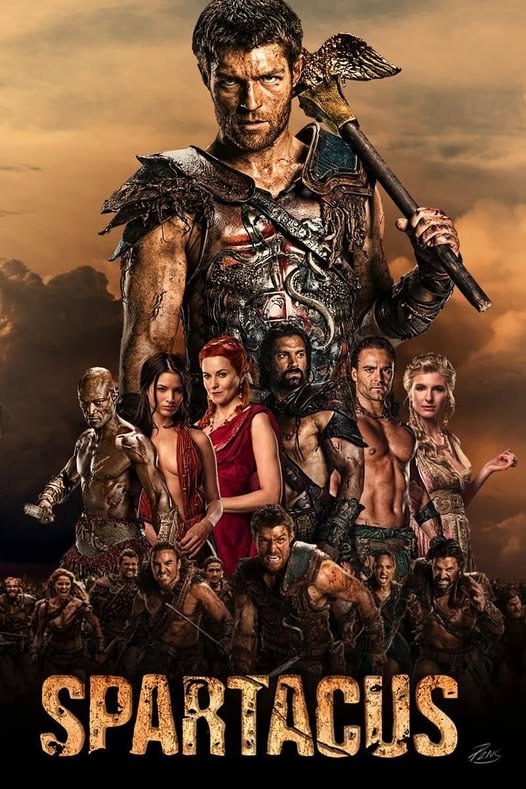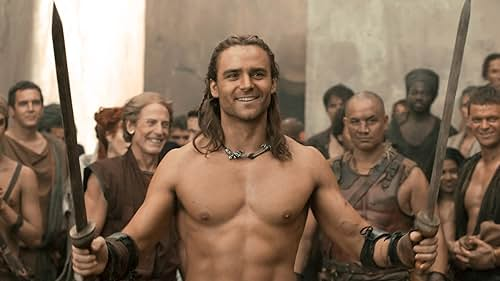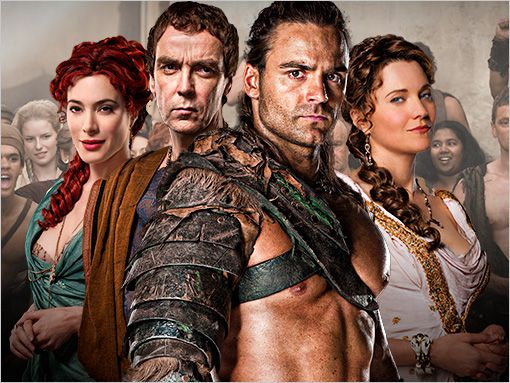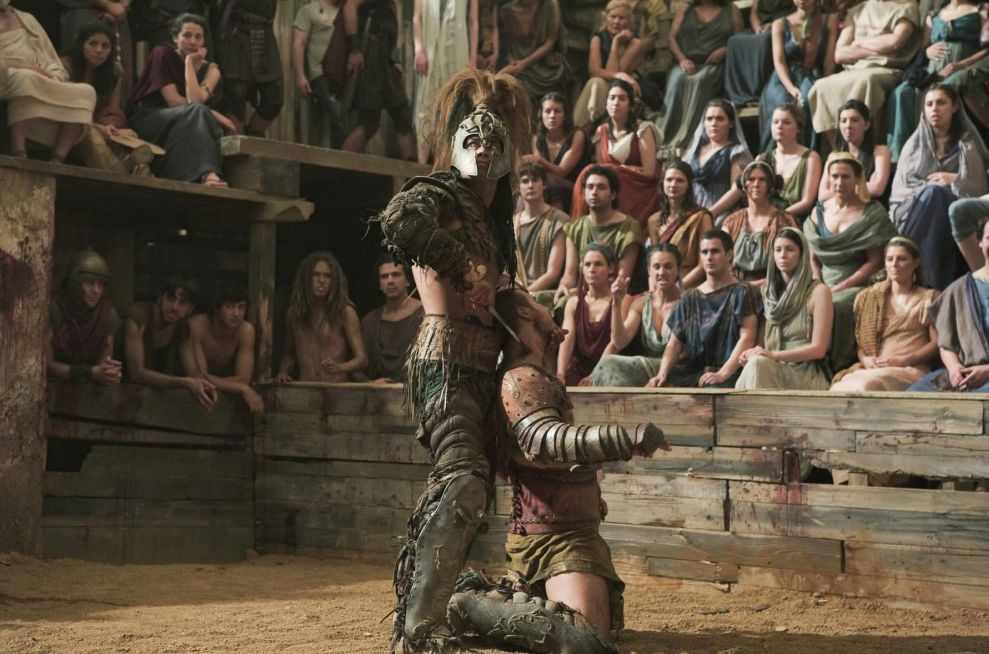Spartacus: Gods of the Arena (2011)

Introduction to Spartacus: Gods of the Arena (2011) – A Thrilling Prequel to the Epic Series
Spartacus: Gods of the Arena is a six-episode miniseries released in 2011, serving as the prequel to the acclaimed television series Spartacus: Blood and Sand. Produced by Starz, the show transports viewers back to the brutal world of ancient Rome, where gladiators fight to the death in the arena for glory, survival, and sometimes freedom. With its gripping storyline, visually stunning scenes, and stellar cast, Gods of the Arena captivates both fans of the original series and new audiences alike.
Setting and Main Storyline
Gods of the Arena takes place before the events of Spartacus: Blood and Sand, focusing on the House of Batiatus, a renowned gladiator training school in the city of Capua. The story centers on Gannicus (played by Dustin Clare), a talented and undefeated gladiator beloved in the arena. Gannicus is not only a symbol of strength but also a complex character wrestling with internal conflicts about honor, love, and loyalty.
Parallel to Gannicus’ journey, the series explores the power struggles within the Batiatus family. Quintus Lentulus Batiatus (John Hannah), the head of the gladiator school, and his ambitious wife Lucretia (Lucy Lawless) relentlessly scheme to elevate their social status and the reputation of their house. The intricate web of political machinations, betrayal, and complex relationships highlights the ruthless and opulent nature of Roman society.

The show also introduces familiar characters from the main series, such as Crixus (Manu Bennett), an emerging gladiator eager to prove himself, and Ashur (Nick E. Tarabay), a cunning figure always seeking personal gain. These interwoven stories create a vivid portrayal of the harsh lives of gladiators, political intrigue, and intense emotions.
Highlights of Spartacus: Gods of the Arena
1. Compelling and Multidimensional Plot
Despite its compact six-episode run, Gods of the Arena maintains a fast-paced narrative, with each episode packed with climactic moments and surprises. The series goes beyond bloody arena battles, delving deeply into the characters’ psychology—from the gladiators’ yearning for freedom to the aristocracy’s thirst for power. The blend of action, politics, and emotion makes it a complete epic.

2. Visually Stunning Action Scenes
The arena battles are meticulously choreographed, delivering realistic and thrilling action sequences. The director’s use of slow-motion effects adds an artistic touch, emphasizing both the brutality and beauty of the fights. Combined with modern visual effects, these scenes are both grandiose and haunting.
3. Outstanding Performances
The cast is one of the show’s brightest strengths. Dustin Clare shines as Gannicus, portraying a gladiator who is both powerful and emotionally complex. John Hannah and Lucy Lawless deliver captivating performances as Batiatus and Lucretia, exuding charm and ruthlessness. Supporting characters like Crixus, Ashur, and Gaia (Jaime Murray) also leave a strong impression with their authentic acting and distinct personalities.

4. Authentic Depiction of Ancient Rome
The series vividly recreates Roman society, from the grandiose arenas to lavish costumes and ruthless political schemes. Attention to cultural details, customs, and lifestyles immerses viewers in the era, making it feel like a journey back in time.
5. Epic Music and Cinematography
The soundtrack, composed by Joseph LoDuca, is distinctly epic, amplifying the emotion of battle scenes and dramatic moments. Paired with beautifully shot visuals, the series offers a remarkable audiovisual experience.

Target Audience
Spartacus: Gods of the Arena is ideal for fans of epic, action, and psychological drama genres. However, the show contains graphic violence, gore, and some sensitive content, making it suitable for mature audiences (18+). If you enjoyed Spartacus: Blood and Sand, or films like Gladiator, Rome, or Game of Thrones, Gods of the Arena is a must-watch.
Why Watch Spartacus: Gods of the Arena?

- A Perfect Prequel: The series adds depth to the Spartacus universe, providing insight into the characters and setting.
- Concise Runtime: With just six episodes, it’s an easy binge-watch over a weekend while remaining intense and complete.
- A Blend of Action and Drama: From brutal battles to political intrigue, the show offers a diverse and engaging experience.
- Talented Cast: The actors not only look the part but also bring profound emotional depth to their roles.
Conclusion
Spartacus: Gods of the Arena is a must-see for fans of Roman epics. With its captivating storyline, exceptional acting, and breathtaking visuals, it stands out as both an outstanding prequel and a standalone masterpiece. Prepare to step into the brutal arena where glory and bloodshed intertwine, and discover the story of the gods of the arena!
Have you watched Spartacus: Gods of the Arena? Share your thoughts or let’s discuss your favorite characters!